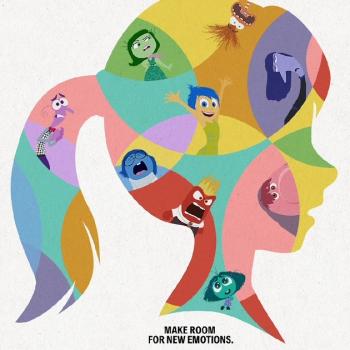I’d like to explore a Sutra with you. This is a text called The Questions of Naga King Sagara. This text reminds me of the short version of the Heart Sutra, where we get an answer, but we don’t get to see the question asked. I’m using the translation from 84000.co, which I will link at the bottom.
What’s a Naga King?
That’s the hard part to talk about for me. Nagas are serpent people. That’s the easiest way to say it. Are they real? I’m pretty skeptical of such things. It’s said that Sagara in particular has a palace beneath the ocean. I’d like to make the case that we don’t have to literally believe serpent people exist in order for this and teachings like it to be helpful to us. I used to really dislike what I will call, for lack of a better word, mythical figures in Buddhist stories but I’ve come around. I’m trying to figure out why it’s important that the Buddha gave this specific teaching to a serpent man that lives in the ocean. We don’t really need to worry about the audience that much, because the audience is also us.
Sagara also appears in the beloved Mahayana Sutras The Avatamsaka Sutra and The Lotus Sutra. Unlike The Questions of Naga King Sagara, these sutras are quite long.
The Questions of Naga King Sagara
Prostrations to all buddhas and bodhisattvas.
Thus did I hear at one time. The Bhagavān was dwelling at the place of the nāga king Sāgara together with a great assembly of 1,250 bhikṣus as well as a multitude of bodhisattvas and mahāsattvas. At that time the Bhagavān said to the nāga king Sāgara:
“Lord of the nāgas, if one utters these four aphorisms of the Dharma, in uttering them one is expressing all of the 84,000 articles of the Dharma. What are the four? They are as follows:
“To fully engage in understanding the inexhaustible doctrine of the bodhisattva mahāsattvas that all compounded phenomena are impermanent; to fully engage in understanding the inexhaustible doctrine of the bodhisattva mahāsattvas that all contaminated phenomena are suffering; to fully engage in understanding the inexhaustible doctrine of the bodhisattva mahāsattvas that all phenomena are without self; and to fully engage in understanding the inexhaustible doctrine of the bodhisattva mahāsattvas that nirvāṇa is peace.
“Lord of the nāgas, if one utters these four aphorisms of the Dharma, in uttering them one is expressing all of the 84,000 articles of the Dharma.”
When the Bhagavān had spoken in this way, the bhikṣus and bodhisattvas rejoiced and greatly praised the teachings of the Bhagavān.
This completes The Noble Mahāyāna Sūtra, “The Questions of the Nāga King Sāgara.”
So, the Buddha, we think, was asked for a teaching by this great and powerful king. And what did the Buddha say? He said all of his teachings can fit into this one teaching with four points. This is sometimes called the 4 Dharma Seals. Impermanence, Suffering, Non-self, and Nirvana (enlightenment).
The bold teaching the Buddha is giving us here is this: If a teaching doesn’t fit into these four aphorisms…it’s probably not a Buddhist teaching. Different kinds of people need different teachings. We know that and the Buddha knew that, that’s why all the numerous kinds of teachings exist. But to the Naga King he said, “This is all you need.”
The first three are sometimes presented as the Three Marks of Existence. There’s not a change to those here, just adding the last one. This is to remind us that there’s a way out.
all compounded phenomena are impermanent
We know that. Everything that comes together comes apart. An easy example is a car. A car is made of parts including an engine, gas tank, wheels, windshield, windows, etc. (I don’t know a lot about cars). We know just from having cars that they wear out. It may be a bit harder to remind ourselves that we are also of the nature to fall apart, but of course we are. We’re also made of parts. Arms and legs, head, each internal organ, skin, etc. And we are also of the nature to fall apart, which is something we realize more and more as we get older, I think. At least that’s been my experience. Nothing lasts and this can create real problems for us because we want the things we like to last forever. Nothing does.
all contaminated phenomena are suffering
Contaminated phenomena means things that are affected by delusion. So, this is about our perception of the world, really. Suffering in this context includes all unsatisfactory experiences. So, it’s getting injured or getting a catastrophic illness, but it’s also having a headache or worrying about how you’re going to be able to pay your bills. All these things are suffering.
all phenomena are without self
This is one of the trickier concepts in Buddhism, in my opinion. Going back to the car analogy, there’s not a core to the car. There is not some part at the center that makes it a car. There’s not a single part you could point to and say, “If I take that one away, this is no longer a car”. It’s, again, a collection of parts. So are you. This could be difficult for some people. Buddhism does not contain the idea of a soul, or a permanent essence within you that lasts forever. Maybe reflecting on that can help us some with our egotism. It can be hard for us to imagine a world without us in it, where we no longer exist.
We want to accept these things about the world, these marks of existence. Then we can work toward putting down our delusions and awakening. When we learn to cut through our ignorance and get a grasp on the true nature of things, that’s where Enlightenment is.
The things getting in our way are:
Not accepting impermanence, not overcoming our delusions, and being so incredibly attached to our sense of identity and all our ideas about ourselves.
If we manage to deal with those things, enlightenment is available to us. The issue is that most of us need more teachings to really grasp this than King Sagara needed.
The Questions of the Nāga King Sāgara (3) / 84000 Reading Room











